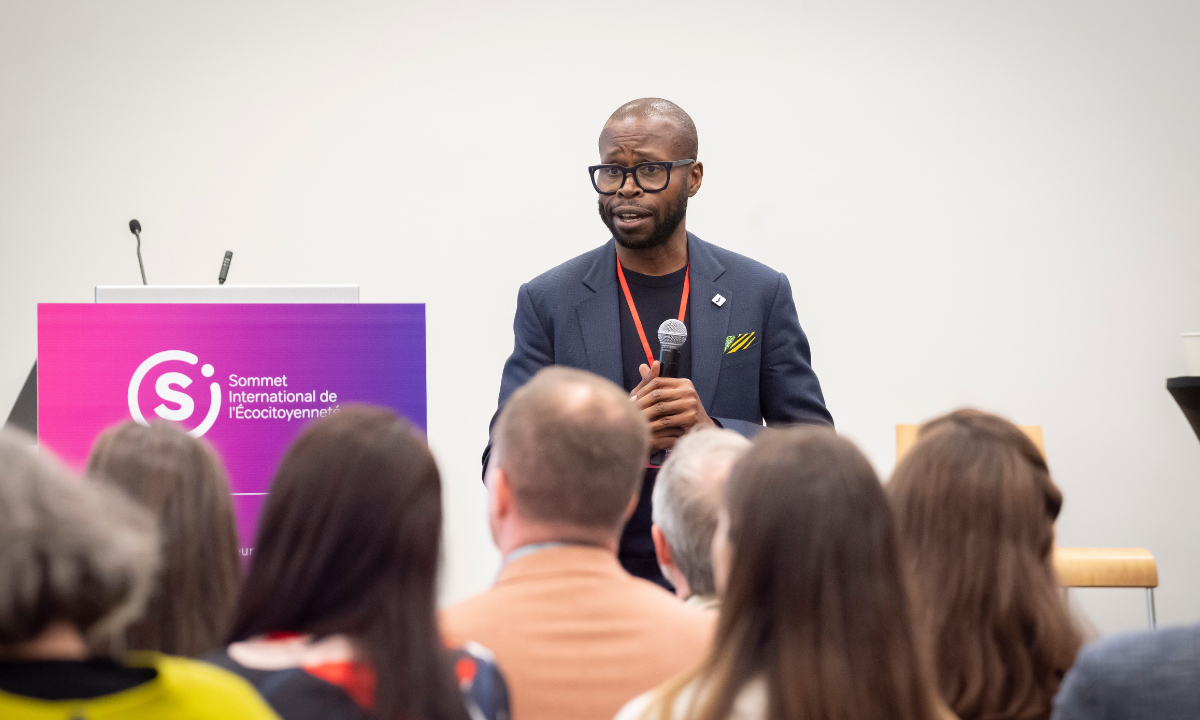Involving these generations in social and professional life must be based on the principles of diversity and inclusion, or more broadly, justice, access, inclusion, diversity and equity (JAIDE). This was clearly shown in From the Mind to the Heart, a study conducted across Canada by AgentsC and Imagine Canada in 2022, with the support of RBC.
What was the study about?
From the Mind to the Heart is the first research in Canada to explore the influence of justice, access, inclusion, diversity, equity (JAIDE) on corporate structures and actions, as well as the beliefs, culture and practices that inhibit or enable equity within corporate nonprofit partnerships.
Philanthropy, which is central to the research, is defined as:
“It’s about inclusion of our hearts, not just about the mind of understanding, but actually through compassion, feeling and moving through what has held us back as a community and a country and where we need to get to, to feel whole again.”
UNDERSTANDING to promote INCLUSION … from the mind to the heart.
The principle is that EACH individual’s heart must be INCLUDED in order to drive positive change. We need to take everyone into consideration and make sure that no one is left behind.
As Olumide Akerewusi, President of AgentsC, said in a talk at the International EcoCitizenship Summit on June 8 and 9, young people are concerned about what a true, genuine commitment and investment on the part of the community should look like. Unfortunately, if we keep basing ourselves on previous models, nothing will change. According to Akerewusi, the younger generations are daring to talk about what isn’t working and want to take action to ensure that there is real change.
Today, consumers expect businesses to have a strong social footprint and a high level of awareness of the issues related to inclusion and diversity, as well as the environment. As Akerewusi stated, one of the keys is to “acquire knowledge in order to empathize with a community or person and influence change.” Leveraging diversity within corporate committees must “be a priority to attract young professionals.”
To properly understand the changes needed to ensure greater equity and social responsibility for businesses, it’s important to have a clear picture of the gaps, which were identified in the From the Mind to the Heart study:
- Lack of Black and Indigenous diversity within corporate community investing teams. According to AgentsC, “Lack of representation and intentionality inhibits equity: Among the key findings, the study shows a lack of representation and influence of Black and Indigenous professionals within the field. Notably, only 25 per cent of Black practitioners reported having funding decision-making responsibility — in contrast to 96 per cent of white respondents.”
- Beyond training on equity, diversity and inclusion, there isn’t a deeper commitment to the principles and practices of social justice.
- Corporate community investment is seen to be of low importance within organizations.
- Companies are slow to change or update their community investment practices, leading to the continued exclusion of diverse groups from important decision-making that impacts funding within their communities.
It’s also important to take into consideration the recommendations of the next generation of young professionals who are entering or preparing for the job market in order to encourage them to get involved in corporate community investing committees and make a real difference in the community:
- Empathy must be at the heart of community investing.
- Diversity in corporate community investing needs to be a priority to attract young professionals.
- Justice, access, inclusion, diversity and equity (JAIDE) and corporate social responsibility (CSR) must be integrated into business education and training.
- Effective CSR requires greater action and commitment from corporate leaders.
These are interesting areas for consideration in order to better integrate young people into corporate community investing committees. Corporate social responsibility is a good way to ensure that actions are rooted in strong values that are embodied by the organization. Employees and the general public will then understand that it isn’t just a marketing campaign aimed solely at looking good but is intended to make a real difference.
About the From the Mind to the Heart study
Findings are described in two reports and are drawn from a survey of Canada’s largest companies, interviews with diverse professionals, and discussions with young leaders. To view the findings go to: https://www.imaginecanada.ca/en/diversity-and-csr
The study conducted by AgentsC Inc. and Imagine Canada, with support from the RBC Foundation, describes the state of the corporate community engagement profession while highlighting unique insights and recommendations from Black, Indigenous, 2SLGBTQI, South-Asian, and South-Asian Muslim professionals on how companies can better advance philanthropy in service of JAIDE.
This article is intended as general information only and is not to be relied upon as constituting legal, financial or other professional advice. A professional advisor should be consulted regarding your specific situation. Information presented is believed to be factual and up-to-date but we do not guarantee its accuracy and it should not be regarded as a complete analysis of the subjects discussed. All expressions of opinion reflect the judgment of the authors as of the date of publication and are subject to change. No endorsement of any third parties or their advice, opinions, information, products or services is expressly given or implied by Royal Bank of Canada or any of its affiliates.



















